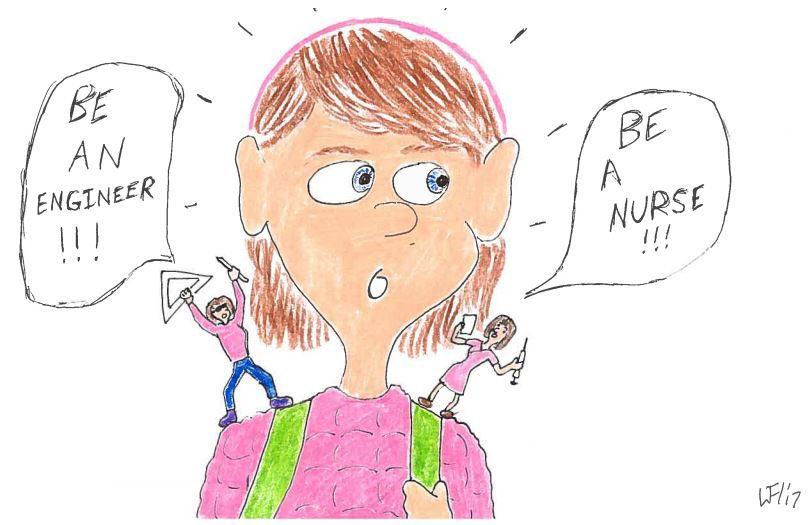According to the U.S. Department of Labor, women made up 47 percent of the total U.S. workforce in 2010. Women have outnumbered men in undergraduate degrees for over 35 years. Additionally, women comprise 57 percent of all enrollment at degree-granting institutions, according to the National Center for Educational Statistics. Women in today’s society are better educated and have higher employment rates than any previous generation.
With recent initiatives to incorporate more girls into science, technology, engineering and math fields, there are more women pursuing these careers than ever before. This sort of progress is crucial in closing the gender representation gap that often discourages women from joining these traditionally male-dominated fields. Though more women choosing to enter STEM careers is a definite step in the right direction, there is no need to minimize or downgrade traditionally feminine professions to achieve this effect.
The goal of pushing for equality in the workforce is to encourage and make it possible for those of either sex to pursue whatever occupation they feel most passionate about, not to place masculine careers on a superior pedestal every person should strive to reach. Traditionally female-dominated professions like teaching and nursing should not have to be degraded to promote more girls branching into other fields. Women, or any person entering the workforce in the 21st century, should not feel inferior for choosing a stereotypically feminine career.
The idea that stereotypically masculine traits are superior to feminine traits begins far before the first job application is submitted. In the early childhood and pre-teen years, there are many subtle and often not-so-subtle ways in which masculine traits are asserted to be superior to feminine traits. For example, when a 2-year-old girl starts building with Legos or playing with toy trucks, her parents are more likely to approve and be proud their daughter is branching out. They may even make an encouraging comment about her potential career as an engineer or architect. On the contrary, if a young boy started playing with Barbies or baby dolls, it is more likely his parents would discourage him from such “girly” activities.
Situations like this only reinforce the idea that traditionally feminine toys, activities and professions are subpar and not as worthy of serious consideration. Despite their young age, these messages are not lost on children and are often carried well into their adulthood as they prepare to enter the workforce. Teaching children to equate female-typical traits with inferiority is as damaging to society as it is false.
The notion that traditionally feminine careers are trivial or unimportant is nothing but a fallacy as women have entered and greatly impacted nearly every career field. If we are truly invested in ensuring a fair workplace for both sexes, we must recognize the extent of women’s contributions, allow them to forge paths into traditionally male-dominated occupations and stop minimizing female-typical professions.
Hannah Kleinpeter is a 20-year-old mass communication junior from Baton Rouge, Louisiana.





